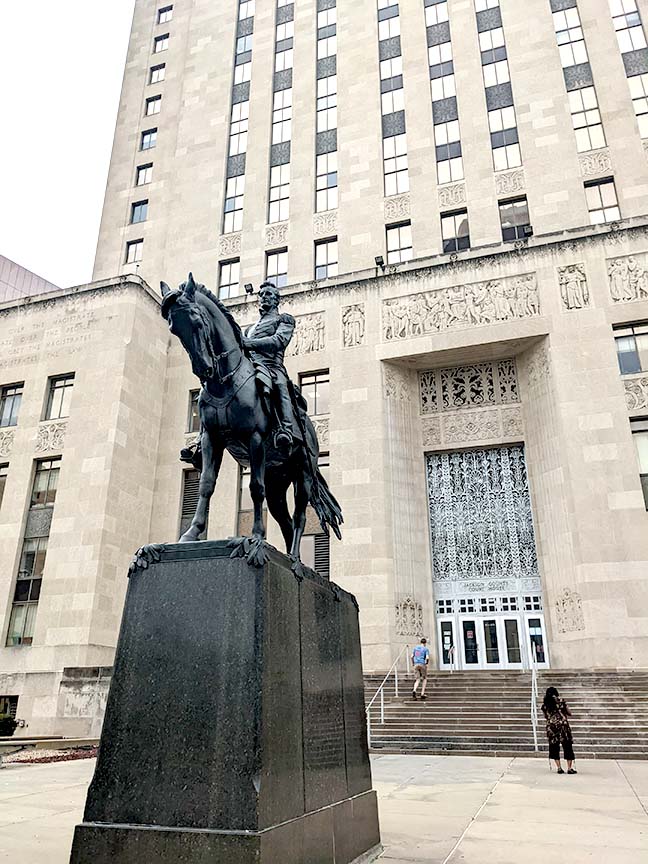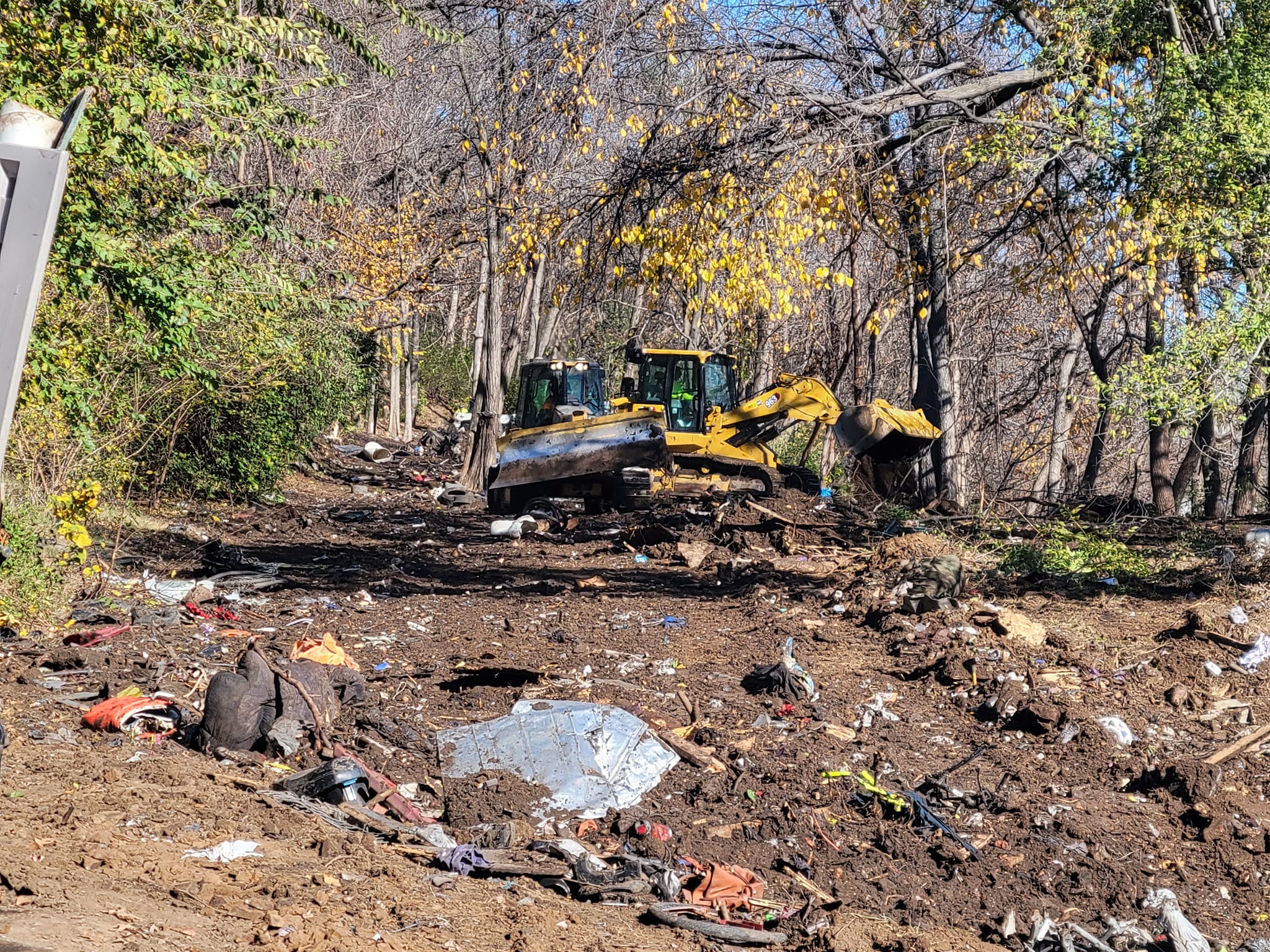Abby Hoover
Managing Editor
Recent increases in real personal property tax assessments are shocking residents as they arrive in mailboxes across Jackson County. Residents of Northeast Kansas City have reported increases ranging from 30% to 300%.
However, help is available through a variety of avenues.
On Monday, June 26, Jackson County Budget Committee Chair Legislator Manny Abarca will host a public hearing regarding property assessments at the Downtown Courthouse, 415 E. 12th Street on the second floor. The Budget Committee is set to start at 2:10 and end at 3 p.m.
“This will be an opportunity for folks to share their concerns directly to their elected officials before the fast-approaching July 10th deadline for submitting appeals,” Abarca said. “The goal is for me to make space for folks to share their concerns and impact to these horrific increases from the Assessment Department under County Executive Frank White—his second time he has dramatically increased property taxes for Jackson County residents. I stand in total solidarity with the residents of our great county who are experiencing such sudden property tax increases.”
Legal Aid of Western Missouri’s Brandon Mason said his office, the Economic Development Unit, is assisting those in need of legal services for their appeals.
“We are assisting homeowners with information on how to prosecute their own appeals, including information on how to appeal, what the hearing before the BOE [Board of Equalization] is like, and tips/tricks on how to achieve the best outcome,” Mason said. “We are also providing representation to individuals on a case-by-case basis, including representation before the BOE.”
Legal Aid’s services are free of charge. Representation is based on age or income. You must be 65 years of age or older or have household income at or below 150% of the federal poverty guidelines based on family size, and you must live in Jackson County, Kansas City, Mo.
Legal Aid’s service area is larger than this, but the Economic Development Unit, which is assisting with the taxation appeals, has these limits.
“We have seen a large increase as compared to last year,” Mason said. “Residential property assessments take place every other year, so last year property valuations were based on the assessed values assigned in 2021. However, we are seeing a significant increase in requests this cycle as compared to 2021.”
Property assessments are Jackson County’s attempt at assigning market value to property for the purpose of property taxation, Mason said.
“When residents receive their official notices from the county outlining this valuation of their individual properties, they may appeal the same to the Jackson County’s Assessment Department and/or the Board of Equalization,” Mason said.
Appeals to the Assessment Department are more informal in nature and involve an interior inspection of the property or a settlement meeting with someone from the department. Appeals to the Board of Equalization entail submitting an online application through its website and a hearing before the Board.
Homeowners should obtain documents to support their valuation opinion prior to meeting with the Assessment Department and their hearing before the Board of Equalization, Mason advised. For those that qualify for Legal Aid’s services, they can help residents through these appeal processes in the hopes of lowering the properties’ valuations.
“Residents should expect a relatively streamlined process from the Board of Equalization,” Mason said. “Once their appeal is submitted, they will receive a notice of hearing which includes the date/time/location of their appeal hearing. The hearing is in person, and is conducted before a panel of Board of Equalization members. Residents should expect to bring evidence to support their requested reduction in valuation, and be prepared to defend their position.”
Missouri State Statute 137.115 discusses real and personal property assessments, physical inspection requirements and more in sections 10, 11 and 12.
“In fact, in December, 2020, the Jackson County Legislature went even further than the state statute and further defined what, and what does not, constitute ‘physical inspection,'” Mason said. “This ordinance was in response to the Assessment Department using ‘Desktop Reviews’ – Google images and aerial photography – as constituting physical inspection.”
Those who qualify can contact Legal Aid at lawmo.org or 816-474-9868.
ReeceNichols agent Stacey Johnson-Cosby is hosting Jackson County Tax Appeal Workshops over the course of this week. The free workshops will help taxpayers prepare their appeal to the county. The one-on-one help will teach about the appeals process across three workshops with an attorney, an appraiser, real estate agents and other experts.
The workshops are at 5:30 p.m. on Thursday, June 22, at Colonial Presbyterian Church, 9500 Wornall; 11 a.m. on Saturday, June 24, at Robert Mohart Center, 3200 Wayne; 5:30 p.m. on Tuesday, June 27, at 28EventSpace, 1300 W. 28th St.; and on Zoom.
Although it may not help this cycle, the Land Clearance for Redevelopment Authority (LCRA) approved the proposed East Kansas City Urban Renewal Plan, which will go to City Council for approval later this month.
Individuals’ realtors can also be helpful in creating a report of comparable properties and estimating market values to build an appeal.
Bob Long, a Sr. Development Services Specialist with the Economic Development Corporation (EDC), said this new district will capture 65,000 parcels across Kansas City’s Northeast and East Sides.
“It’s going to the City Planning Commission Tuesday, the 20th, and will be at the Neighborhood Planning and Development Committee on the 28th, and hopefully City Council approval on the 29th,” Long said.
Area boundaries are Cliff Drive on the north, I-435 on the east, Bannister Road on the south, and Troost Avenue on the west, including all properties directly adjacent to the west side of Troost. This plan covers many neighborhoods that are not currently within an Urban Renewal Area.
This new program is designed to reward positive investments in neighborhoods in the third, fourth and fifth and parts of sixth council districts. Homeowners can have their property taxes frozen when they invest at least $5,000 in qualified improvements.
Affordable housing projects with specific rent restriction requirements will be eligible for speedier processing, and projects that receive a letter of support will be eligible for incentives without financial analysis, which gives neighbors a stronger voice in what kinds of developments receive incentives in their communities.
Many neighborhoods on the East Side already have urban renewal areas, but not all of them, and really was a function of who could afford to pay for the process, the blight study and the LCRA application fees. Neighborhoods like Sheffield in the Northeast were previously excluded. For the Indian Mound/Lykins Urban Renewal Plan blight study, the City covered the $50,000 fee, funded through one-time surplus revenue from a prior redevelopment effort in the Northeast known as the Century Towers Redevelopment Project.
“It really became who could afford to pay for it, or who could find funding to pay for it, and that meant that some neighborhoods really should have been Urban Renewal Areas weren’t Urban Renewal Areas,” Long said. “This plan covers them all.”
The Urban Renewal Plan is designed to make it easier for residential investment and incentivise property improvements.
“It’s really focused on residential stuff, so homeowners will be able to apply for 10 years of tax abatement,” Long said.
The abatement is also available to multifamily and commercial projects with a letter of support from their neighborhood association and their council representative.
Long said people are always shocked when they see steep raises.
“The counties are really just trying to match up the actual market value compared to what the real estate market value actually is, so in many respects, the assessor’s office has been giving out tax abatements by undervalued properties for decades,” Long said. “Everybody’s looking at this and looking at their potential tax bill and thinking, ‘I can’t afford to have my tax bill double.’”
Long said property owners can apply with at least $5,000 worth of work in the past three years, even if the project is still in progress.
For this new, expanded district, they’re combining past studies and other data from current Urban Renewal Plans, Planned Industrial Expansion Authority (PIEA), Tax Increment Financing (TIF) districts, and codes violations, population shifts, and demographics to compile a non-traditional blight study.
“I’ve owned an old house, you’re never done with the house, right?” Long said. “It’s just one of those facts that comes with owning an older house. So if you people spent money in the last year or two and did things like re-roofing or re-siding or tuckpointed or replaced windows and doors, made porch repairs, or did a bunch of interior work like new heating and air conditioning and new electrical and plumbing, and new bathrooms and kitchen and stuff like that, those are all eligible costs.”
Long will be at the Northeast Kansas City Chamber of Commerce on Friday, June 23, from 12 to 4 p.m. for walk-in consultations.
EDC, although not a government agency, is contracted to staff a variety of economic development activities, business retention, expansion, entrepreneurship and minority business development. They staff the TIF Commission office, the Chapter 353 Advisory Board, and the LCRA, which gives them the authority to abate taxes.
“Once the City Council approves the East Kansas City Urban Renewal Plan, if they approve that, as expected by the end of June, you could start applying for tax abatement in July,” Long said. “I mean, we really want this to hit the ground running.”
There is a bill on the Missouri governor’s desk to lower taxes for seniors, but it has not been signed yet.
If signed by Republican Gov. Mike Parson, it would be up to counties to approve the property tax breaks. The freeze on property tax rates would only apply to the primary residences of people age 65 and older.
Editor’s note: This article has been updated from the print version in June 21st’s issue to reflect additional information. Questions? Ask the Northeast News at northeastnewskc@gmail.com, and we’ll reach out to our expert sources.


















